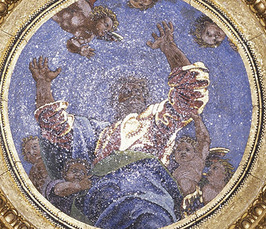Frameworks for Meaning and Experience in the Mendicant Convent
Research Seminar
- Datum: 13.11.2018
- Uhrzeit: 12:00 - 14:00
- Vortragender: Andrew Chen
- Ort: Villino Stroganoff, Via Gregoriana 22, 00187 Rom
- Gastgeber: Bibliotheca Hertziana - Max-Planck-Institut für Kunstgeschichte
- Kontakt: paulinyi@biblhertz.it

To define the mental habits of the well-to-do male viewers of the Quattrocento, Baxandall looked to
texts produced and used in that century. But what happens when the ways of seeing are not of their
time, but belated? Assessment of a selection of manuscripts that entered the libraries of mendicant
convents in the Renaissance reveals the tenacity and relevance of interesting older ideas about ways
of seeing, the origins of art, beauty and ugliness, and the function of visual representation.
Considering these in relation to the canonical works of art going up in these churches in the period
brings us close to a sense of their possible meaning in reception. Focusing especially on the Chigi
Chapel at Santa Maria del Popolo, this research seminar will propose some frameworks for
mendicant experience and suggest some implications for art historical method.
Scientific organisation: David Zagoury
Andrew Chen is Research Fellow in History of Art at St John's College, Cambridge. He is the author of
Flagellant Confraternities and Italian Art, 1260-1610 (Amsterdam University Press, 2018), a study of
the use and meaning of art in ritual context. He is currently writing a book on the contemplation of
art by nuns and friars during the Renaissance.